Strong views aired at minaret podium event
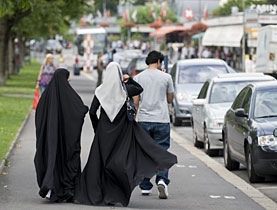
By all accounts most citizens have made up their minds ahead of a ballot at the end of the month on a proposed ban on minaret construction in Switzerland.
At a recent panel discussion in the watchmaking town of Biel there was no doubt where the audience’s sympathies lay.
It was less than 15 minutes into the evening before the room was called to order for the first time. The audience of mostly conservatives and rightwing supporters erupted over the views expressed from the podium by a member of the local government.
Erich Fehr had argued that a ban on minarets was counterproductive and that the Muslim community had never been a major problem in Biel or in Switzerland. Unlike the situation in cities in neighbouring France and Germany with Muslim ghettos.
The politician, a representative of the leading local party, tried hard to convince the meeting that a ban on minaret construction was not the way to achieve peaceful coexistence and integration. But he was not only facing an unfriendly crowd but also a formidable opponent on the podium: Oskar Freysinger, a member of the People’s Party in the Swiss parliament.
Freysinger, with his trademark pony tail, rare rhetorical talent and a preference for polemics, was playing to the home crowd.
Showing off his knowledge of Islam, he quoted selected verses from the Koran. It was not hard to see the college teacher in Freysinger when he began to throw in specialist terms that most likely went way over the heads of the average citizen in the room.
“I wish the minaret vote was over,” Freysinger said at the beginning, but before long he was in his element, hammering home the message that the proposed minaret ban was needed to prevent the spread of Islam and militant Muslims in western Europe.
“Our Christian culture is about to kill itself,” he warned.
Consequently nothing and nobody could stop him from taking verbal digs at leftwingers, feminists, bankers and the political establishment as well as supporters of a liberal immigration policy. He was rewarded with several rounds of spontaneous applause.
“It was a lively evening,” Freysinger said at the end of two-hour meeting. “For once I had an audience which backed me.”
Raw nerve
His opponent from the local centre-left Social Democratic Party appeared unshaken by the shouting, the verbal attacks and criticism.
Fehr put his case calmly and hit a raw nerve when he warned the listeners – a mix of older and younger people, mostly men – that approval of a minaret ban could trigger an economic boycott by Muslim countries.
“I don’t need to remind you what a crucial role the export industry plays for the local economy.” This statement produced indignation and angry protest.
The region of Biel is renowned for its watchmaking and engineering industry. It has an unemployment rate of nearly six per cent, which is a third above the national average.
Entertainment
The evening was unlikely to make members of the audience reconsider their opinion ahead of the vote on November 29, but it had entertainment value for some.
“I found the jeering crowd rather amusing,” said Reto Steiner. His colleague Miriam Goetschi pointed out that both sides in the debate had had a fair say. In her view, local councillor Fehr had the better arguments on the night.
Zahid Butt, a member of the Ahmadyya Muslim group in Switzerland, who asked several questions during the meeting, found the discussion digressed too much.
“It was not really about minarets. The evening was lively and people clearly came with their set ideas,” he said.
Butt believes the initiative is taking aim at the wrong target. Still he is concerned that the outcome of the vote will be very close.
Adrian Dillier who organised the meeting in Biel was pleased with the evening and the turnout of at least 120 people.
“The atmosphere was great and the discussion covered a lot of issues,” he said.
Urs Geiser, swissinfo.ch
Members of rightwing parties collected enough signatures to force a nationwide ballot on a proposed minaret ban on November 29.
There are an estimated 200 mosques and cultural centres in Switzerland, including four with a minaret.
Biel has at least 12 mosques and prayer rooms for Muslims, but none of them has a minaret.
There have been several disputes at a local level over planned new minarets over the past few years amid concerns over an increase in the number of Muslim immigrants.
Biel-Bienne, known for its watchmaking industry, has about 51,000 residents and is among the ten biggest Swiss cities and towns.
The town in the northwest of the country prides itself on being bilingual in German and French.
Foreigners accounted for about 27% of the local population, according to 2007 statistics, which is above the Swiss average. Many of them came from countries outside the EU.
Muslims made up about 7% of the population (data from 2000 census).
The official unemployment rate in Biel is 5.9% – nearly 2% above the national level.
Centre-left parties have a majority in the local government and parliament.

In compliance with the JTI standards
More: SWI swissinfo.ch certified by the Journalism Trust Initiative

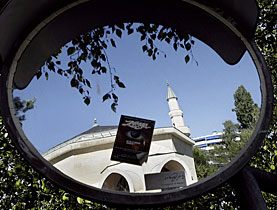
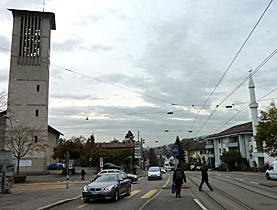
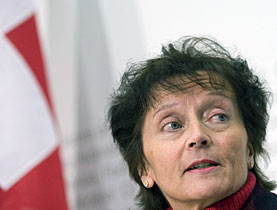
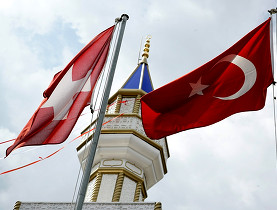
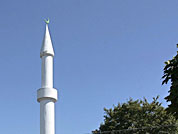
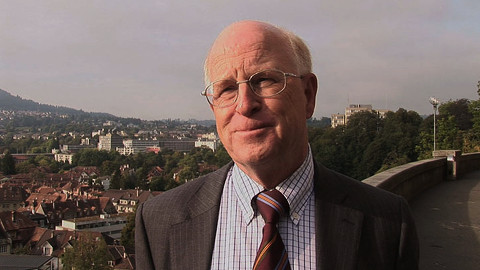
You can find an overview of ongoing debates with our journalists here. Please join us!
If you want to start a conversation about a topic raised in this article or want to report factual errors, email us at english@swissinfo.ch.